Maro Itoje: tackling ‘the one-man wrecking ball’
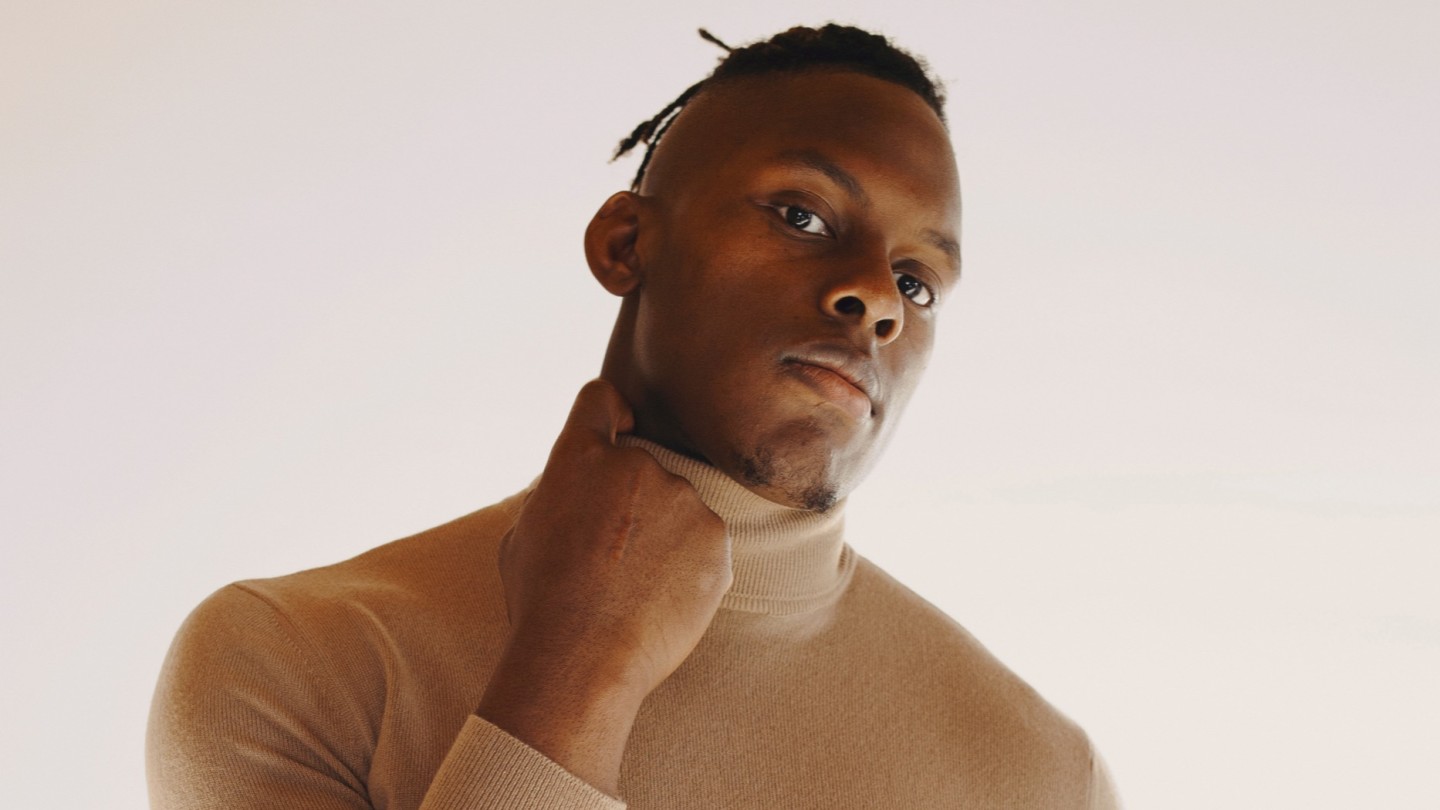
Simply sign up to the Fashion myFT Digest -- delivered directly to your inbox.
Following England’s victory in the Six Nations, we’re revisiting this interview with Maro Itoje.
When Maro Itoje takes to the pitch in Paris on February 2 to begin England’s Six Nations campaign, he will carry a heavy burden of expectation on his shoulders. The 25-year-old second row – nicknamed “the Pearl” because he’s such a precious talent – has been hailed as a “once in a generation” player, a future captain of England and the British Lions. Back in November, a World Cup winner’s medal just eluded him, but former England captain Martin Johnson described the team’s 19-7 victory over the All Blacks in the semi-final as the greatest performance ever by an England team. The man of that match? Maro Itoje.
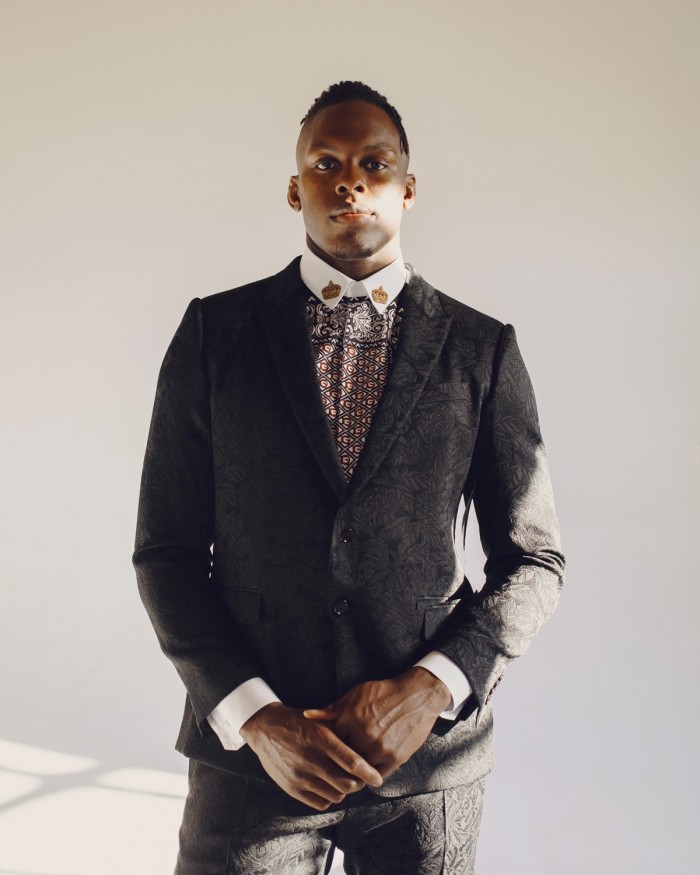
At 6ft 5in and 18 stone, Itoje has been described as a “one-man wrecking ball”, but that doesn’t do justice to his talents. On top of being a colossus of world rugby, he’s also a SOAS politics graduate, part-time poet, self-styled champion Connect 4 player and a budding fashion clothes horse on the books of Models 1 – albeit one with a shoe size of 13½ and an 88cm inside-leg measurement.
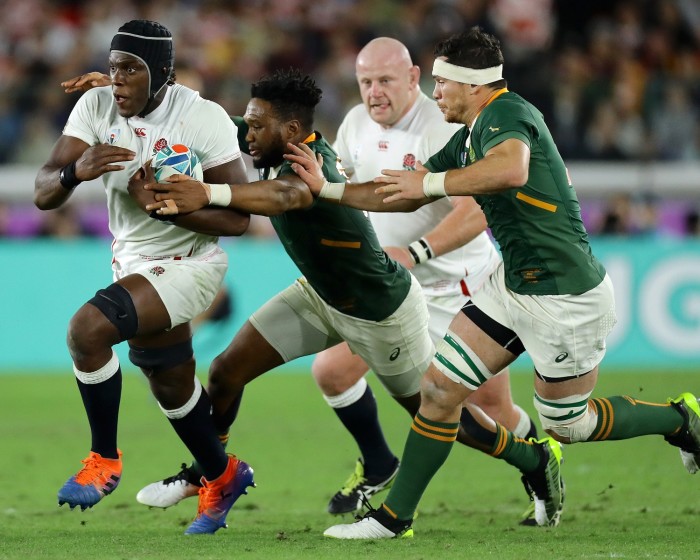
In person, he is softly spoken and offers a surprisingly un-vice-like handshake. We meet at the training ground of his club, Saracens, near St Albans on a misty winter morning. If he’d followed his parents’ dreams for him, he wouldn’t be here at all. His father, a teacher, would have had him a banker or accountant; his mother, who works in property, would have preferred it if he’d played tennis and become a doctor. “One day, I might work up the courage to break it to her that the ship has sailed,” he has said.
Rugby was never supposed to be a thing. “My heritage is from Nigeria,” he says. “Rugby isn’t even in the conversation with most Nigerian parents. Growing up, I never knew what rugby was, barely understood it, hated watching it on TV.” It was his headmaster, a former Saracens player at Salcombe prep school in north London, who spotted Itoje’s potential. “I started playing when I was 11 and pretty much just kept on progressing,” he says of his first taste of rugby at secondary school, the state boarding school St George’s in Harpenden (whose former pupils include his international teammates Owen Farrell and George Ford). “But in my family, sport was something to be enjoyed and done to keep fit – there was never a big focus put on it. It was always about education, studying and all that kind of stuff.”
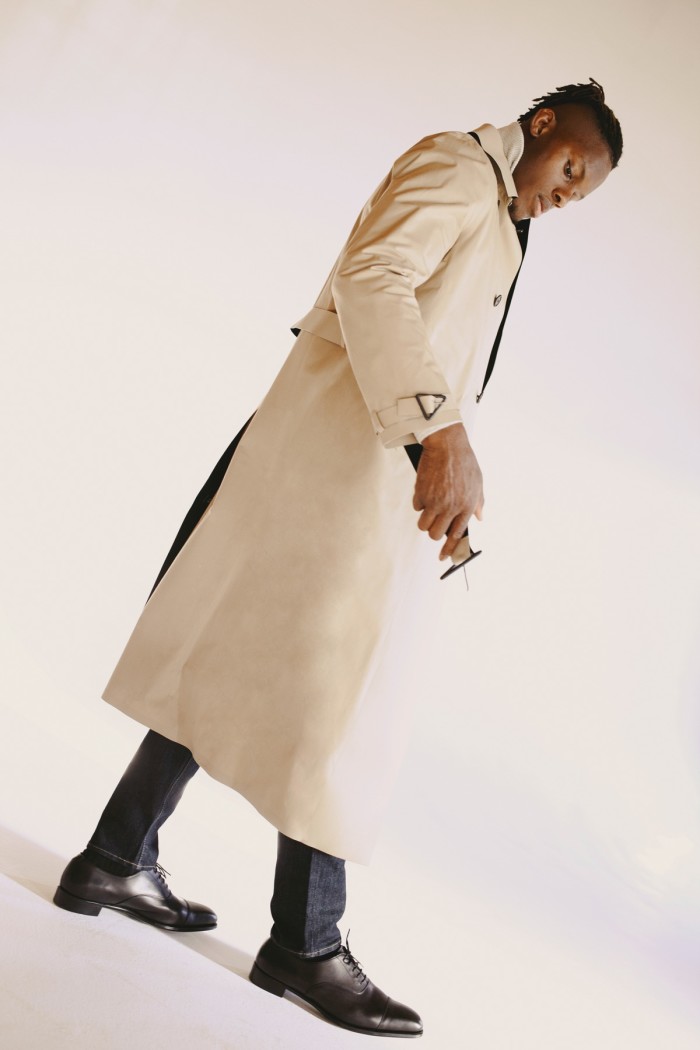
In sixth form, Itoje won a sports scholarship to Harrow where, despite being the only boy in his class who put up his hand when the teacher asked who would vote Labour, he embraced the arcane, otherworldly dress codes: “I actually really enjoyed doing up my bow tie, wearing my top hat, walking with my cane.” His cane? “If you were a monitor you’d be given the privilege to hold a cane. A lot of people resented it, but I just found it really cool,” he says.
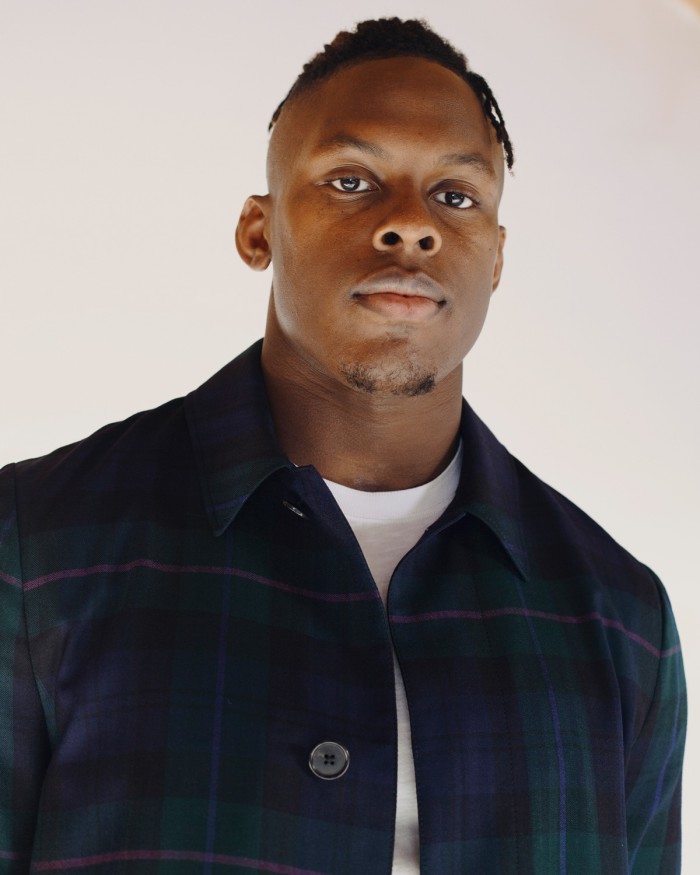
By the time he went to SOAS to study politics, rugby was getting serious. He made his professional debut at Saracens aged 19 and captained England to victory in the U20 World Championship. But he stuck with his studies, graduating with a 2:1. He was awarded his first international cap aged 21, and by the age of 24 had won two Six Nations tournaments, four premierships and three European Cup titles. But however mighty you are in battle, you can’t win them all. When we meet, it’s just two and a half weeks after England’s loss to South Africa in the World Cup final, and Itoje is, unsurprisingly, still smarting from defeat. “It was definitely the toughest defeat I’ve ever experienced in terms of emotion, in terms of the amount of effort that you put into getting there. In terms of everything.”
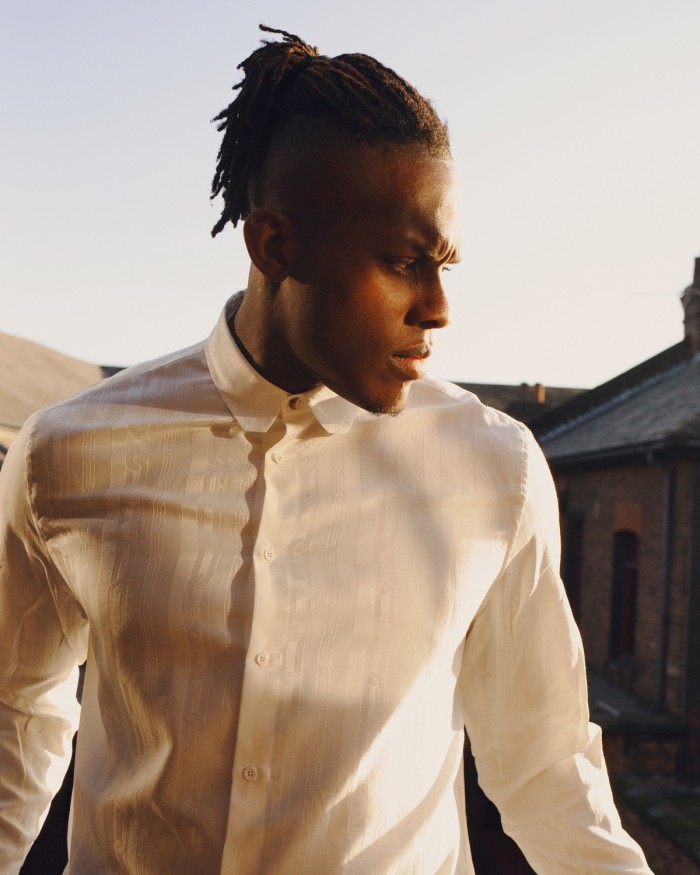
I ask Itoje how a team can go from the high of their demolition of New Zealand to the disappointment of their performance in the final against South Africa. What could they have done to change things on the pitch? “I think we struggled to adapt to what was happening: we struggled to adapt to the referee, we struggled to adapt to what South Africa were doing. And the sad thing is that we didn’t really get our game going, we didn’t really fire a punch or really get into the game – which is probably, when I look back, the most disappointing thing.”
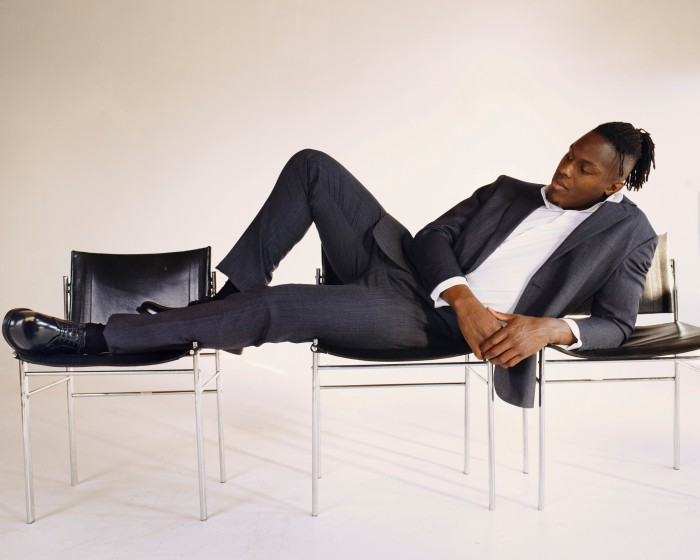
One shot of the aftermath of the final shows Itoje and his teammates staring blankly into the distance; the England coach, Eddie Jones, stands just behind Itoje, arms crossed, lips pursed ruefully. A straight-talking Australian, legendary for his Stakhanovite work ethic and tendency to send and expect answers to emails at five in the morning, Jones cuts a pretty terrifying figure. He has nurtured Itoje into a world-class player. He also, in one of their first meetings, told him that he looked a bit too pretty and could do with some more scars on his face. Itoje dutifully broke his jaw (“I got head-butted on the pitch. By mistake, allegedly. I honestly turned into Buzz Lightyear”). He took Jones’s jibe in good humour. “I don’t really want any more injuries, to be honest,” he laughs, “but Eddie has all these different ways, funny ways of getting the most out of people in his camp and his squad. And he’s constantly looking to innovate, constantly looking to change and adapt.” Indeed, in the weeks that followed the World Cup, Jones carried out a root-and-branch overhaul of his coaching staff. We’ll get our first taste of how the England team of the future will look and play tomorrow.
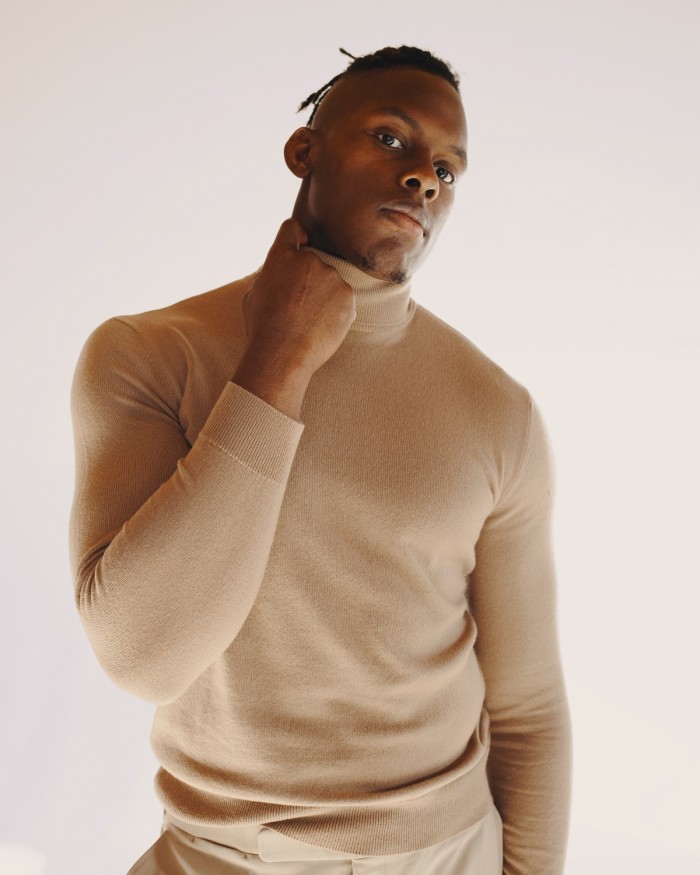
Itoje is confident the World Cup should be seen as a beginning, not an end. “I think with the age profile of the team, there’s still more growth left in it, and we can become the team we want to be. And I see no reason why that can’t start at the Six Nations. After the final I thought to myself: I never want to experience this again. So I’m very keen to get back in an England shirt and start working again.”
The England captaincy, meanwhile, is still in the hands of his Saracens teammate Owen Farrell, but Itoje is clearly ready for leadership if, à la Boris Johnson, the ball should come loose at the back of the scrum: “I think the more leaders you have in a team the better, really.”
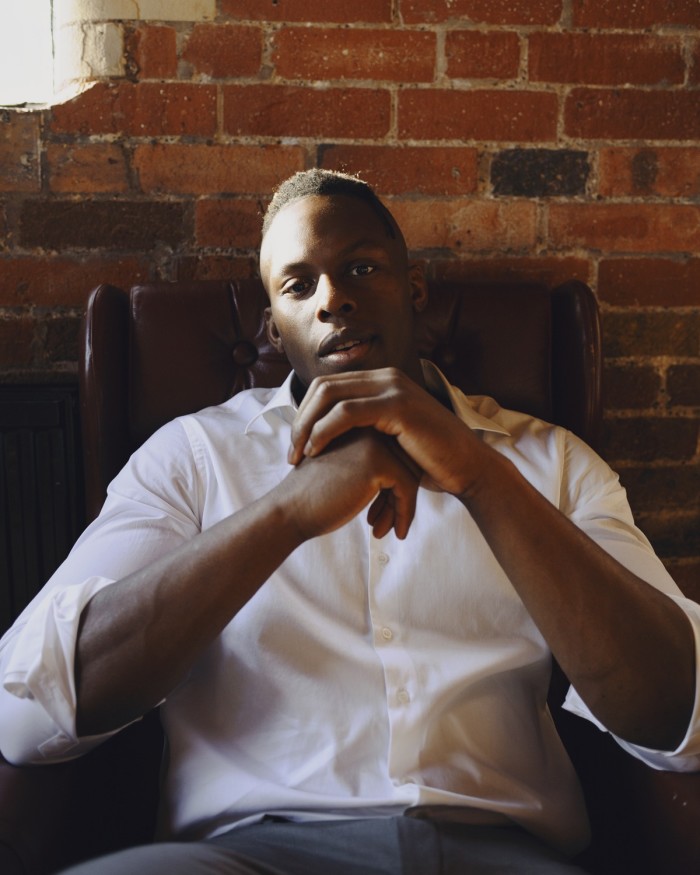
When asked about his role models, Itoje talks about Shaquille O’Neal, Magic Johnson, Muhammad Ali, and Kwame Nkrumah, the first president of Ghana. He also speaks in the warmest tones about his parents. “They’ve played a huge part in my life, instilling a lot of my values, helping me shape the person I am today.” Whatever their early thoughts about his career in rugby, they are now his staunchest supporters.
We also talk about racism in sport. He spoke out forcefully on the subject when a number of England footballers were abused during the International in Bulgaria last October, but he’s nuanced and careful when it comes to comparing the culture of rugby to football. “It’s not to say rugby is the perfect picture, but I think in rugby there’s a big emphasis on respect,” he says. “And the culture of rugby is less abrasive and rude. It’s a lot more ‘humble in victory, humble in defeat’ kind of thing. Football’s such an emotional sport, it’s tribal. And people follow clubs like it’s their religion. So it can either make you jubilant with joy or depressed with anger and envy.”
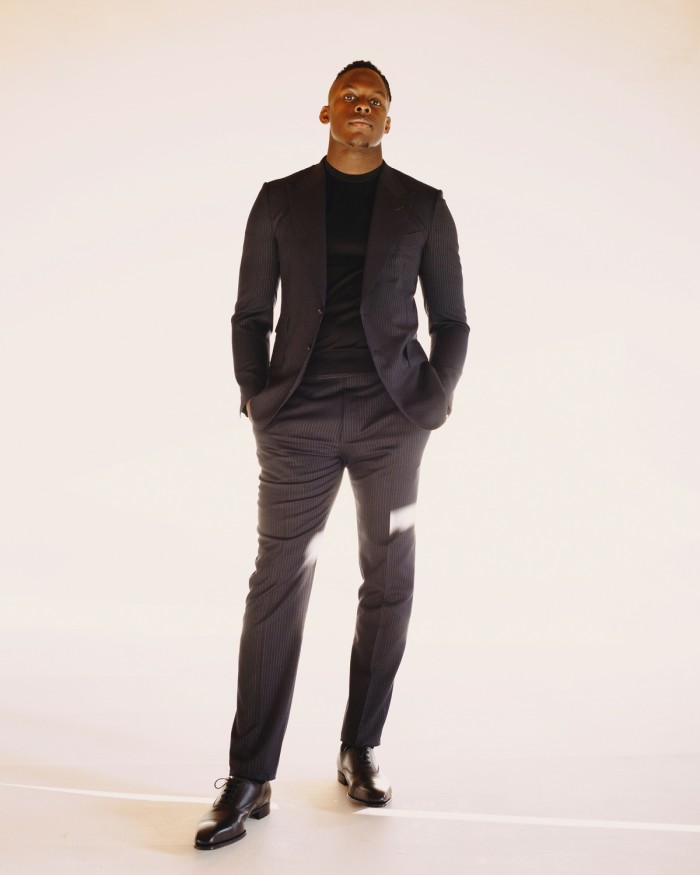
Anger, envy… the seven deadly sins. Itoje’s Christian faith underscores everything in his life, even when he’s tackling opponents. “For me, life is a lottery,” he says. “You can be born into any circumstance, any situation. So when I’m fortunate enough to do the things I do I’m just incredibly grateful, because I believe it’s not from my doing, it’s from the big man upstairs,” he says.
Or big woman. Itoje has described himself as a liberal feminist – can any man afford to be anything less today? “I think the world’s changing,” he says. “A lot of things that were allowed to go on in the past – as you can see with recent events – are not being allowed any more. And this change is all for the good.”
If Itoje is the future of the rugby player, this is surely all for the good. In fact, he’s kind of too good to be true, and yet I find my gnarled, cynical, middle-aged self wanting to be him. I think we can safely assume that he didn’t go out on the town and drink himself into oblivion following England’s World Cup defeat. Maybe a sake or two. “I’m not a big drinker,” he says. “I hate beer, I hate wine, which is not so good if you’re in a rugby team. I’m not teetotal, but it’s not something that I desire massively.” As for girlfriends, he once told a newspaper that if he were to give his younger self a piece of advice about girls it would be to choose wisely. Very wisely. Has he? He pauses a beat, then laughs. “Next question.”
The modelling, it seems, comes pretty naturally as well. Unlike a lot of rugby players, he seems to have an innate sense of style. Although he looks a bit sheepish when I say so. “I guess so, yes. In my friendship group, if you dress badly, everyone lets you know about it,” he says. Do they often take him down for how he dresses, and what for? “I’m normally all right. It’s more the rugby fraternity. They have a set look, and sometimes when you try and manufacture your look in different ways – so things they’re not too comfortable with – they try to bring you down. But you have to stay strong.” As a motto for Itoje’s life so far and for what’s to come, he could do a lot worse than that.
Hair, Yusuke Morioka at Coffin Inc using Bumble and Bumble. Fashion assistant, Honey Elias. Photographer’s assistant, Tirtha Lawati.
Comments